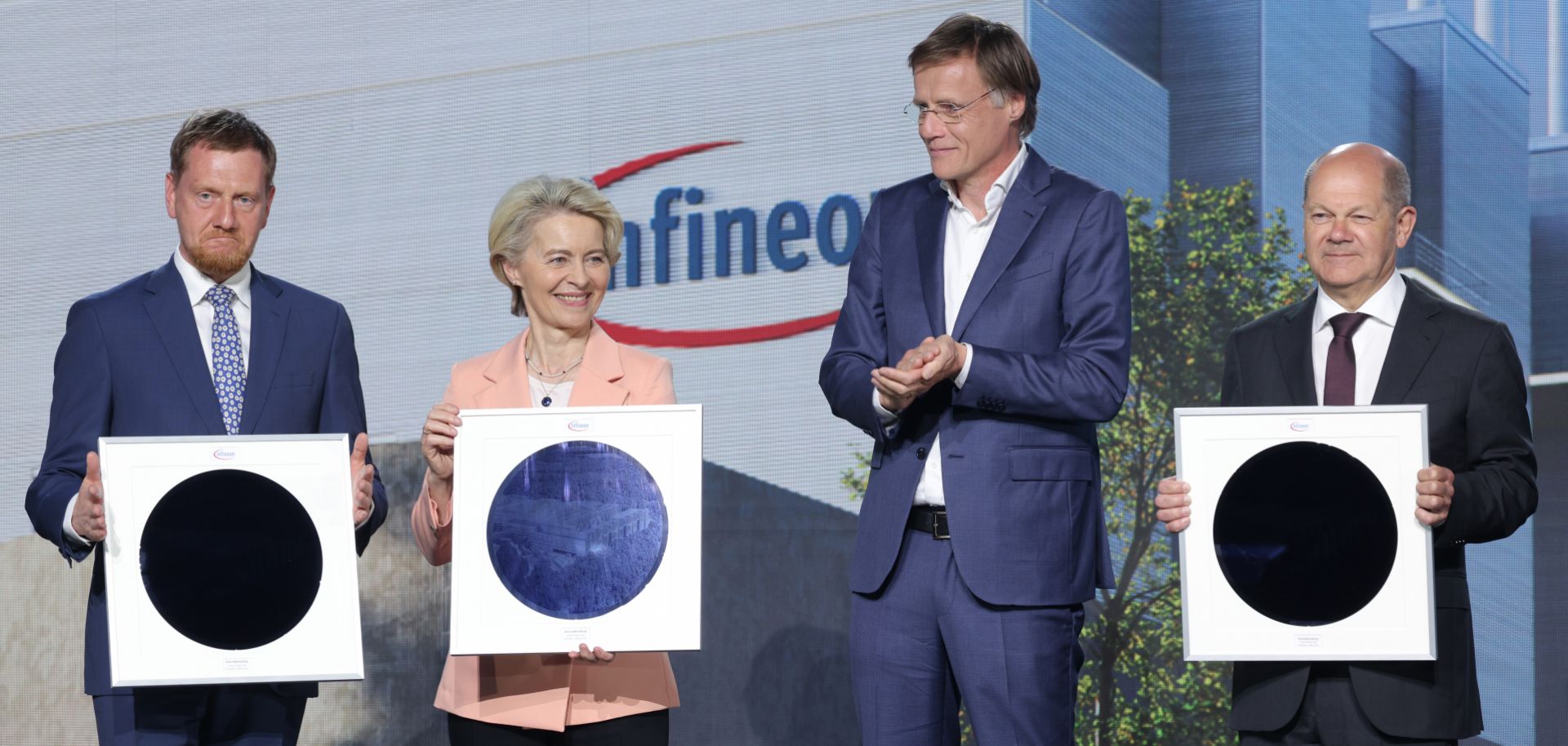ASSESSMENTS
What Stands in the Way of the EU's Chipmaking Dreams
Aug 1, 2023 | 21:54 GMT

(L-R) Saxony Premier Michael Kretschmer, European Commission President Ursula von der Leyen and German Chancellor Olaf Scholz hold semiconductor wafers as Infineon CEO Jochen Hanebeck (second from right) looks on during a ground-breaking ceremony for a new semiconductor factory in Dresden, Germany, on May 2, 2023.
(Sean Gallup/Getty Images)
Subscribe Now
SubscribeAlready have an account?
